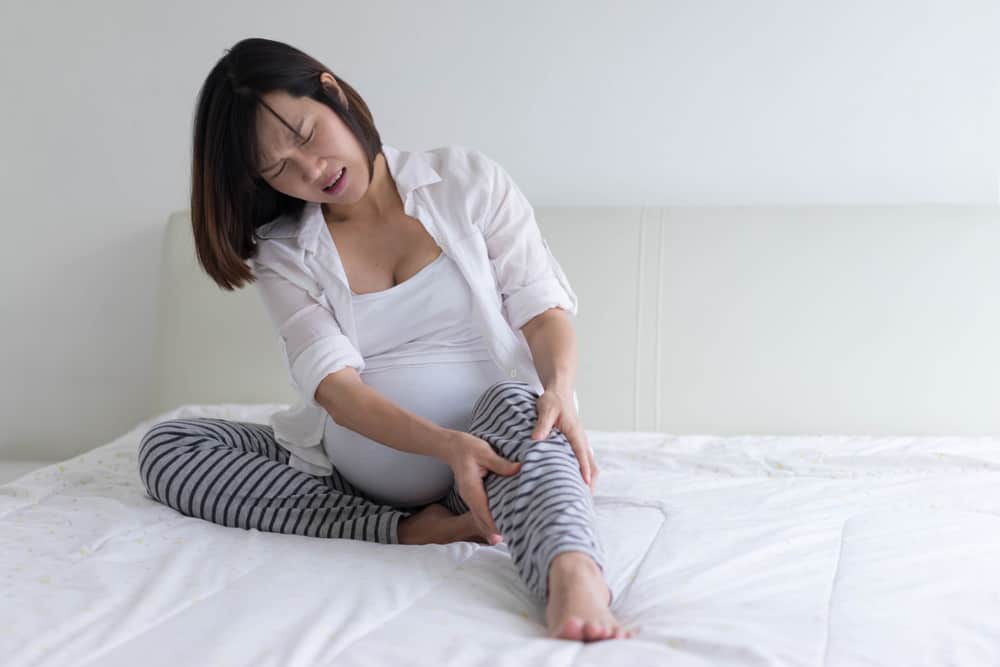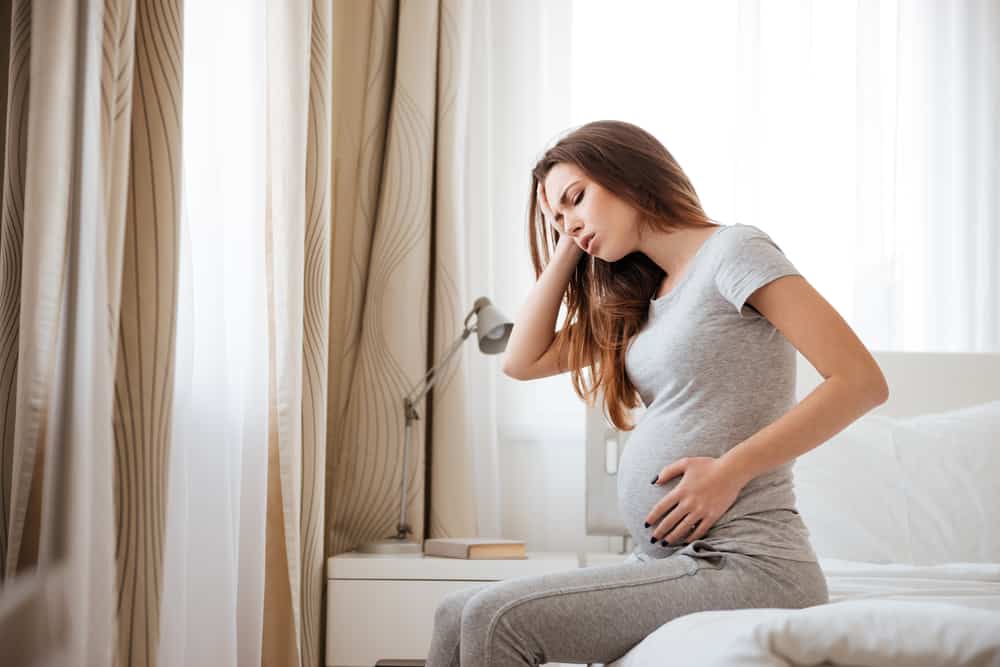Pregnancy insomnia is a real thing. 66% to 94% of pregnant women report experiencing sleep disturbances when they’re pregnant although they may experience insomnia at different times. Most pregnant women start to experience pregnancy insomnia as their pregnancy progresses further along. This is likely due to the immense hormonal and physical changes that are happening to their body.
This article will serve as a guide to pregnancy insomnia. We’ll look at the consequences associated with poor sleep, common causes and solutions, as well as additional tips and tricks that might help you enjoy a better night’s sleep.
Consequences of Insomnia
Poor sleep quality and insomnia during pregnancy can do a lot of harm to your pregnancy. For one, sleep loss can increase stress levels, which may lead to adverse pregnancy outcomes. Some studies have found that poor sleep increases the pregnant mother’s risk of developing gestational diabetes.
On top of that, pregnant women who get a poor quality of sleep are more likely to develop depression and have difficulties coping with labor pain. They may have a more difficult birth and may need to give birth by undergoing a cesarean section.
Poor sleep may also contribute to an increased risk of preterm births. Preterm babies are more likely to suffer from chronic health issues and require more hospital care. They also have an increased risk of sudden infant death syndrome (SIDS).
Causes and Cures for Insomnia During Pregnancy
Pregnancy insomnia is extremely prevalent because there are so many different factors that can cause pregnant women to experience insomnia. Below, we’ll look at some of the most common causes, as well as their respective solutions.
Backaches and Muscle Aches

When you’re pregnant, your center of gravity shifts forward, so your back muscles need to work overtime. Most women also gain anywhere from 25 and 35 pounds, so their spine has to support a lot more weight. Backaches and muscle aches are a common thing amongst pregnant women, and is one of the main reasons why they struggle with pregnancy insomnia.
Solution: Get Comfy
If you’re constantly kept up at night because of aches and pains, the best thing that you can do for yourself is to get comfy. Comfort at night is key to getting a good night’s sleep, so do whatever it takes for you to get comfortable.
This might mean that you’ll need to add a lot more pillows to the bed, or it might mean trying a different sleeping position. Some pregnant women recommend lying on your side and tucking a pillow between your knees. You should also tuck a pillow under your growing belly as well for optimal comfort. During the day, try acupuncture, get a massage or go see a chiropractor to see whether they help with treating the aches and pains.
You can also try changing the temperature in the room. Most experts recommend keeping your bedroom temperature at 65°F for better sleep; however, play around with the thermometer until you find a temperature that’s comfortable for you.
Gas and Heartburn
Heartburn, excess gas and indigestion are common conditions during pregnancy and do not require any medical attention; however, these conditions may keep you up at night because they make you feel uncomfortable. Heartburn is often associated with a burning sensation in the chest while excess gas is mostly discomfort focused near the stomach region or lower body.
These conditions are often caused by hormonal changes in the body that slow down digestion. On top of that, every organ in your body is getting squished. Your lower esophageal sphincter may open or leak and allow stomach acid to flow upwards as your uterus grows.
Solution: Be Mindful When Eating
If you’re struggling with gas and heartburn, you’ll want to eat small meals and early on in the evening. Avoid eating heavy meals at night, as they can prevent you from falling asleep. Fatty foods can also exacerbate symptoms of heartburn and lead to other gastrointestinal issues.
Another thing to note is that you should eat slowly. If you eat too quickly, you’re much more likely to experience heartburn because your stomach will have a more difficult time trying to digest the larger chunks of food you’ve wolfed down.
You should also keep a food diary, so you know what the triggers for your insomnia are. For example, some women will find that they’re more likely to experience heartburn during the night if they eat chocolate. If that’s the case, they should avoid eating chocolate as much as possible while pregnant.
Leg Cramps and Restless Leg Syndrome (RLS)

Did you know that 30% of pregnant women will experience leg cramps when pregnant? Many of these women will also experience what is known as Restless Leg Syndrome (RLS), especially during their third trimester. RLS is an urge to move your legs. If you don’t move your legs, you’ll feel really uncomfortable.
Both leg cramps, which can be quite painful, and RLS can keep you up at night even if you’re tired and exhausted. These conditions are usually brought on by hormonal changes in the body.
Solution: Take Magnesium Supplements
Fortunately, magnesium supplements can alleviate the pain and discomfort of both leg cramps and RLS. Magnesium helps muscles relax and prevents them from contracting. If leg cramps or RLS is keeping you up, most experts recommend taking a highly absorbable form of magnesium, like >magnesium glycinate chelate, during the day.
Folic acid and iron supplements can also help with RLS. Some pregnant women find that prenatal vitamins can make a huge difference as well.
Stress and Anxiety
The mere thought that you’ll be a mother in a couple of months can be very stressful and anxiety-inducing. After all, your whole life is going to change. Stress and anxiety can easily keep you up at night and prevent you from getting a good night’s sleep. You might find your mind worrying constantly or you might not be able to fall asleep because your heart rate increases significantly while you think about worrisome thoughts.
Stress and anxiety can also be brought on by hormonal changes. Some pregnant women find that they’re a lot more emotional than when they weren’t pregnant.
Solution: Practice Relaxation Techniques
Try to ease your anxiety and stress by practicing relaxation techniques. This can be anything from yoga to meditation to talking with your partner. If you have anything stressful on your mind, it’s always a good idea to talk to your partner about it. Talking to someone about your problems could really help ease stress and anxiety.
If you’re looking for a fun meditation exercise to help ease your anxiety, try out the exercise below:
Increased Urination
Are you constantly getting up to pee? This is a huge reason why many pregnant women have difficulties sleeping. The moment that they get any shut-eye, they’ll be woken up by the urge to pee.
Frequent urination is a huge part of pregnancy. For one, hormonal changes during pregnancy stimulate your kidneys and cause them to produce more urine. Also, as your baby gets older and bigger, their weight will press on your bladder, so you’re going to need to go to the washroom more frequently.
Solution: Slow the Flow
Pregnant women need to drink a lot of water, so don’t try to limit your water intake. Instead, try to drink more water during the day and stop drinking a couple of hours before you go to sleep. This should help limit the number of times that you’ll need to wake up to use the bathroom. On top of that, try not to drink any tea or coffee, as both of those drinks can cause you to need to go to the bathroom.
Teas and coffee contain a substance called EGCG. This substance helps your liver and kidneys get rid of waste. If you drink tea or coffee before bed, the EGCG in these beverages will start to work while you sleep, which will create a lot of toxic waste that needs to be flushed. And, how does your body flush away waste? It does so by waking you up and making you go to the bathroom, so avoid these drinks for a full night’s sleep.
Insomnia Tips and Tricks
If the solutions above don’t work for you, try out the tips and tricks below. They’re not directly related to pregnancy-specific causes of insomnia, but they just might do the trick!
Exercise Regularly

Light exercise can really help get all of your energy out and relax your muscles. If you’re not getting enough exercise, you might find it difficult to get any sleep at night. We recommend that you do light exercises throughout the day, whether it be yoga or a short walk around the block. Just be careful not to exercise within 4 hours of going to sleep, because the hormones released from exercising could keep you awake.
Most experts recommend most pregnant women get about 30 minutes of moderate-intensity exercise several days a week. The exercise will help ease muscle pains, help strengthen the body and also help ease the stress on your joints. You’ll feel better and healthier if you exercise regularly.
If you’re looking for a fun routine, check out the quick, 15-minute full-body pregnancy workout below:
Create a Bedtime Routine
Another highly recommended solution for treating pregnancy insomnia is to create a bedtime routine. Try to wake up and go to sleep at specific times, and avoid screen time at least an hour before bed. Studies show that blue light from your mobile phone, tablet or TV can have a negative impact on your body’s circadian rhythm, which can then lead to sleep disturbances.
Some experts recommend doing something relaxing before going to bed, like taking a nice warm bath or asking your partner to give you a short massage. The key is to help yourself unwind and relax instead of bottling up all that stress.
While we’re on this topic, it’s important to note that some pregnant women are very sensitive to light. Consider installing blinds and even blackout window tints that will keep your bedroom nice and dark. This alone can make a huge difference!
Try Aromatherapy
Last but not least, give aromatherapy a try! You’d be surprised at how certain scents can really help you doze off at night. Lavender essential oil is known as a natural sleep aid and can increase the amount of slow and deep-wave sleep that you get. Sage oil can help you relax, which promotes good sleep as well.
You can use aromatherapy for sleep in several ways. One, you can rub some of the essential oil on your wrists or palms when you go to sleep. Or, you can add 2 to 3 drops of the oils to a diffuser, so the scent will be released throughout the entire room. Some people also recommend buying a lavender-scented pillowcase or adding a few drops of essential oil to your bed sheets and pillowcases before calling it a night.
You’re Not Alone

If you’re struggling with pregnancy insomnia, just know that you’re not alone. This is a problem that affects many pregnant women. Try out the tips and tricks that we’ve outlined above to see whether it can improve your sleep quality, and consider speaking with a healthcare professional. They may be able to employ a variety of non-pharmacological and pharmacological treatments to help you better manage sleep disturbances.
